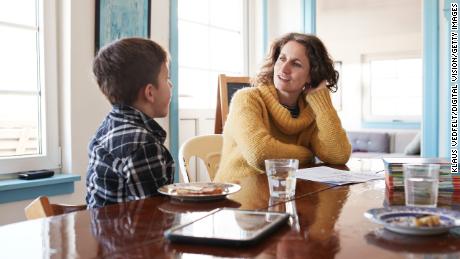Class is, by and large, in session and in person. Sports, clubs, plays, band and other extracurricular activities are in full swing. This is the semester families have been waiting for. After missing out on sports seasons and graduations, dances, games and other rites of passage, adolescents and young adults essentially have their lives back. This should be an invigorating time for them. Right?
Not quite. My young clients, ranging in age from 10 to 22 years old, tell a different story. They are exhausted.
Here’s why, along with some quick and easy 15-minute solutions to help them.
Not leaving home to go to school
Over the past year and a half, many of our kids have become accustomed to rolling out of bed and logging into class, all within just a few minutes. No shower, no breakfast, perhaps no change of clothes. Now, new routines and habits need to be reestablished. If your child leaves little or no time to prepare for the day ahead, this contributes to their exhaustion.
15-minute solution: Encourage them to gradually wake up earlier, 15 minutes a week or so, to allow time to get ready. Within a few weeks, they should be back in their morning groove.
Going to sleep way too late
Despite our best efforts, many kids stayed up and slept in later during the pandemic. They were simply not getting enough sleep. Now back in school full time, kids haven’t adjusted their sleep patterns. This adds to their sense of exhaustion, as they are still up late, but waking earlier, missing the eight to 10 hours they need each night.
15-minute solution: Make gradual adjustments to your kids’ bedtimes, scaling back 15 minutes every few days until they are sleeping enough. Eliminating screens from bedrooms can help significantly here as well. And perhaps most importantly, make sure you establish sound household sleep patterns, including adjustments to your own sleep.
They didn’t have to work hard
Kids are way out of practice academically. These past semesters have been a hodgepodge of learning methods, and kids tell me that none have been particularly effective. In moments of honesty, most of my school-age clients tell me they learned virtually no material since March 2020, but some very effective ways of cheating the system, Googling answers during online exams, and completing the bare minimum in homework assignments.
15-minute solution: Our kids need to relearn paying attention in class and studying at home. For parents, this will require contact with teachers and counselors to ensure your kids are on track at school, and possibly tutors to help reestablish effective homework routines. Try adding homework time in manageable 15-minute chunks each week.
These interventions may only need to be temporary, just to jump-start effective habits that your kids may lack the energy for right now.
They didn’t have to deal with people they didn’t like
Some kids have told me that reconnecting socially has added to their exhaustion. Many have been far less social during the pandemic and found it a welcome relief from pre-pandemic social pressure. There were few social ladders to climb, dramas to manage, or new relationships to nurture.
Now, kids feel thrust right back into their social lives, and they feel unprepared. Outcasts feel outcast again. Bullies are back to bullying. Dramas are playing out again, and old assumptions about each other are rearing their heads. Of course, old connections are also thriving, and new connections are being forged. Most kids are very happy to be back with their peers, but they are finding themselves overwhelmed.
15-minute solution: Take 15 minutes for a vital, no-pressure check-in with your kids. Ask them for a high point and a low point from their day and talk them through those moments. You may get precious little back, or a full discussion. Either way, your kids will know you’re available to talk with them about the fresh dynamics of their social lives. And you’ll have the opportunity to briefly brainstorm through the low points without the talk feeling overwhelming.
Then, step back and allow some space to find their way anew. They may, for instance, choose to stay in on a weekend night when they would normally go out. For now, let them regulate their social lives and tap out when they tell you they are on the verge of feeling overwhelmed.
They didn’t move enough
Many kids became increasingly sedentary during the pandemic. They were reclined in bed, playing video games, scrolling through social media and texting with friends. This pattern has left them feeling sluggish and fatigued.
15-minute solution: This time presents an opportunity to get your kids reengaged physically. Have them sign up for an athletic team or dance club. Get them working out or running at school. The more they move, and the more physical energy they spend, the less exhausted they’ll feel. And for parents, I would encourage you to make daily exercise nonnegotiable. A boost to your kids’ emotional well-being will prove to be a bonus here. And if you find your kids are resistant, start with 15 minutes of exercise a day for a week, and build from there.
Keep the long game in mind
I urge parents to extend some grace to their kids as they make these adjustments. The pandemic has taken so much away from them, and it has thrown their lives out of rhythm, leaving them exhausted. Allow them to slowly gain back their momentum and point out their victories in enacting change successfully. With a little time and grace, you’ll be helping your kids to find their way through these issues.










